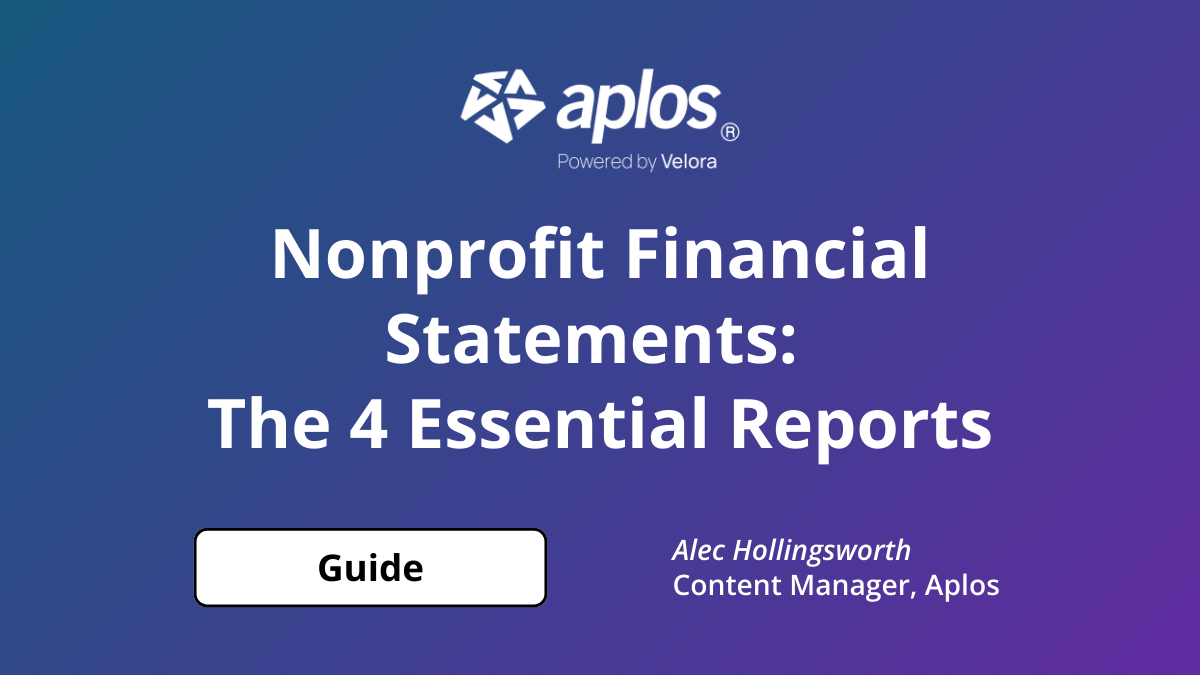
In-Kind Expenses Explained for Nonprofits

What are in-kind expenses? These expenses refer to how an organization uses goods or services that are given to the nonprofit in place of cash. This article will discuss the benefits and impact of in-kind contributions for nonprofit accounting, and how to maximize their value.
Defining In-Kind Donations
In-kind donations are items or donated services that someone provides to a charitable organization. They have value because they help the nonprofit stay functioning by preventing overhead costs. This kind of donation can be anything from food and clothing to computers and furniture. In-kind transactions are common in the United States because they help organizations like nonprofits stay financially stable by allowing them to exchange in-kind gifts for rent or supplies needed for their programs or operations.
One reason someone may provide an in-kind contribution is that the payee does not have enough money to pay their bills, so they offer a good or service as payment instead. It is also common for people to provide a service for free as a way to give back to an organization or the community.
Defining In-Kind Expenses
In-kind expenses are the other side of the transaction in the nonprofit’s accounting. They are expenses that have been paid for in the form of goods and services rather than cash. If someone provides free office cleaning to a nonprofit as a donated service, or in-kind gift, the organization would record the gift in their books as income. The nonprofit would also record the office cleaning on the expense side of their accounting as something the organization would have normally paid for. In this case, the expense just happened to be covered by the in-kind gift.
Types Of In-Kind Contributions In Nonprofit Organizations
The following is a list of types of in-kind contributions. In-kind contributions may be in the form of equipment, inventory, and other tangible goods or services. Generally speaking, these expense types include:
- Equipment – A gift in this category might include items such as office furniture, computers, or a company vehicle.
- Supplies and materials – These items may include everything from paper clips to raw materials used by production staff when manufacturing products offsite.
- Professional services – These would include donated services, such as bookkeeping, legal, or IT services.
What Types Of Services And Donations Don’t Qualify As Gifts In Kind?
Products or services the organization wouldn’t generally pay for do not qualify as in-kind gifts for nonprofits. Donations that are offered in exchange for something the donor wants in return also do not qualify as a gift in kind.
How To Report And Document In-Kind Contributions
Significant contributions like artwork, land, and buildings are just some of the many types of in-kind contributions that must be reported on your Form 990. In addition, you must document small contributions, such as a sponsored catering bill or a shipment of free office supplies.
To document your organization’s expenses in your accounting, calculate what it would have cost if the nonprofit had to buy them. For example, if a landscaper were providing service for free, record the hourly rate and use that figure as the donation amount.
The Role of In-Kind Contributions in Grant Applications
In-kind contributions can significantly strengthen grant applications by demonstrating community support, organizational capacity, and resource leveraging capabilities. Many grant-making organizations specifically look for evidence that a nonprofit has secured matching funds or in-kind support as a sign of project sustainability and community investment.
How to Calculate In-Kind Contributions for Grants
When including in-kind contributions in grant applications, accurate valuation is crucial:
- Professional Services: Calculate based on the standard hourly rate for that profession in your geographic area. For example, if an attorney who normally charges $300/hour provides 10 hours of pro bono work, report this as a $3,000 in-kind contribution.
- Volunteer Time: Use established benchmarks such as the Independent Sector's annual value of volunteer time (updated yearly) or profession-specific rates if the volunteer is providing specialized services.
- Physical Goods: Determine fair market value through comparable retail prices, professional appraisals (for high-value items), or documented wholesale costs.
- Facility Space: Calculate based on the going rate for comparable space rental in your area, including utilities if applicable.
Providing Evidence of In-Kind Contributions
Grant reviewers require solid documentation of in-kind support:
- Commitment Letters: Obtain formal letters from donors stating what they're providing, the estimated value, and the timeframe.
- Valuation Documentation: Maintain records showing how you arrived at the value (price lists, professional appraisals, hourly rate calculations).
- MOU (Memorandum of Understanding): For ongoing in-kind partnerships, create formal MOUs outlining the specific goods or services being provided.
- Tracking Systems: Implement systems to record and verify the receipt of in-kind contributions throughout the grant period.
- Donor Acknowledgments: Provide formal acknowledgment letters to donors that confirm the contribution and its estimated value.
Strategic Tips for Grant Applications
- Match Requirements: Many grants require matching funds (often 1:1 or 1:3 ratios). In-kind contributions can sometimes fulfill part or all of this requirement, effectively stretching your cash resources.
- Budget Presentation: Create a separate section in your grant budget specifically for in-kind contributions, clearly labeled and with detailed calculations.
- Narrative Impact: In the grant narrative, explain how these contributions strengthen your organization's capacity and demonstrate community support for your mission.
- Partner Relationships: Highlight how in-kind contributions represent meaningful partnerships rather than just financial transactions.
- Sustainability Planning: Use secured in-kind support as evidence of your organization's sustainability planning and community embeddedness.
Conclusion
In many cases, in-kind contributions can be the most valuable form of contributions given to a nonprofit. They provide a nonprofit with goods or services that would otherwise be paid for from a limited budget. The nonprofit can also avoid the costs associated with purchasing those items elsewhere.
If you’re struggling with fundraising or finding donors who are willing to donate money to your nonprofit, consider reaching out to potential donors who may want to help your organization by providing something other than cash, such as an office space rental, a catering service donation, or office supplies.
The government has important guidelines regarding what constitutes an in-kind contribution, so make sure you have all of your books organized and appropriately documented before making any requests.
Aplos provides helpful resources, but it is not meant to be a substitute for professional services. Always consult a CPA or trusted professional when seeking tax or accounting advice.
Frequently Asked Questions
What are in-kind donations?
In-kind donations are items or donated services provided to your nonprofit instead of cash, e.g., food, clothing, computers, or furniture.
How do you record in-kind expenses in accounting?
You record donated goods or services as income and also record the corresponding expense as what you would have paid.
What types of in-kind contributions exist?
Common types include equipment, supplies and materials, and professional services such as bookkeeping, legal, or IT.
What types of services or products don't qualify as gifts in kind?
Products or services your organization wouldn't generally pay for, and donations given in exchange for something the donor wants, don't qualify.
Which in-kind contributions must be reported and how should you document them?
You must report significant contributions like artwork, land, and buildings on Form 990; document valuation and keep supporting records.

Our comprehensive closeout services start at $399 per month that needs to be reconciled. Sign up before Jan 1st and pay just $199.50 per month!
Copyright © 2025 Aplos Software, LLC. All rights reserved.
Aplos partners with Stripe Payments Company for money transmission services and account services with funds held at Fifth Third Bank N.A., Member FDIC.
Copyright © 2024 Aplos Software, LLC. All rights reserved.
Aplos partners with Stripe Payments Company for money transmission services and account services with funds held at Fifth Third Bank N.A., Member FDIC.



.png)



